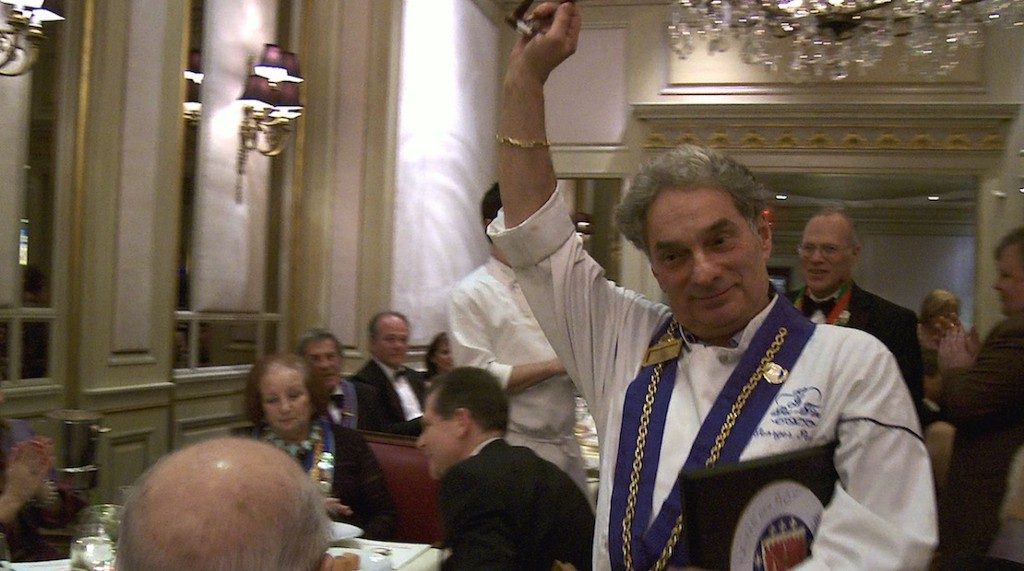Erika Frankel most recently produced “The Home Team” (SXSW, AFI DOCS 2014), “Annie: It’s the Hard Knock Life” (PBS 2013) and “Frontrunners” (SXSW, Oscilloscope 2008; Sundance Channel 2010). She has produced several specials, episodes and segments for various PBS series, including “American Masters” and “NOVA scienceNOW.” “King Georges” is her directorial debut. (Press materials)
“King Georges” will premiere at the 2015 DOC NYC Film Festival on November 16.
W&H: Please give us your description of the film playing.
EF: “King Georges” follows master chef Georges Perrier as he struggles to save his world-renowned, 40-year-old-plus Philadelphia restaurant, Le Bec-Fin, from the forces of progress and the changing tastes of his customers.
W&H: What drew you to this story?
EF: I grew up outside of Philadelphia and had always known of Perrier and Le Bec-Fin and how they had drawn people to the city for over four decades. So when he announced he was planning to close the restaurant in 2010, I knew it was going to be such a major loss for the city, but also for the food world. I thought, “Someone needs to film this for history’s sake!” It was like having the opportunity to capture Michelangelo in action before he retired.
W&H: What was the biggest challenge in making the film?
EF: Financing!
W&H: What do you want people to think about when they are leaving the theater?
EF: “King Georges” is a film about passion, perfection and the forces of time and change, so I hope people can relate to those themes and find something in Georges’ story that resonates with them and makes them think about their own journey in a different way.
W&H: What advice do you have for other female directors?
EF: I love the story that [cinematographer and director] Ellen Kuras tells about wearing dresses and feminine clothes around New York City while she was filming “I Shot Andy Warhol” because she wanted people passing by to get used to the image of a woman in a dress behind the camera, on a dolly and doing things that we are more used to seeing men do.
So I’d say to women — and men too — find work you believe in, work hard and be bold. You might break some stereotypes along the way.
W&H: How did you get your film funded? Share some insights into how you got the film made.
EF: I begged, borrowed and stole. It’s hard to get a film about an artist funded. All I can say is, if you believe in your story and think you have great material, make it happen however you can.
W&H: Name your favorite woman-directed film and why.
EF: Just one?! Mary Harron’s “American Psycho,” Amy Heckerling’s “Clueless” and Sofia Coppola’s “Lost In Translation.” All of them have such entertaining characters and are so visually pleasing.
And if I can sneak in some TV, my husband and I loved everything about Jill Soloway’s “Transparent” — the writing, the acting, the style and the music — so much that even though we could have binge watched it on Amazon in a few hours, we decided to watch one episode a week so that we could savor each one.







